Defence Secretary Gavin Williamson gave a speech this week which he says “outlines the case for a modern defence”, here’s what he said.
1. BRITAIN’S PROUD HISTORY
The United Kingdom has a proud history on the world stage. We helped defeat tyranny in two world wars and communism in the Cold War. We have shielded the most vulnerable from Kosovo to Sierra Leone. We helped liberate millions from the shackles of oppression and exported democracy, tolerance and justice around the world. In the process, Britain alongside our allies ushered in a period of peace and prosperity across our continent unparalleled in its history
2. OUR ARMED FORCES ARE STILL DELIVERING FOR US TODAY
Today, our Armed Forces continue to uphold this proud British tradition. They are keeping us safe across the world. Our pilots are destroying terrorist targets in Iraq and Syria and policing Eastern European skies against an increasing threat from Russia.
Our soldiers stand sentinel with our NATO Allies in Estonia and Poland to deter this threat. We are strengthening the security of Afghanistan and, in South Sudan, helping establish stability and giving democracy the chance to grow and flourish.
Our sailors are countering international piracy, policing our waters and securing safe passage for the ships that support our global trade.
Beneath the waves our nuclear submarines go undetected, our submariners on patrol every day of every year providing our ultimate defence against the most deadly dangers to our way of life
In the last few weeks alone our forces have provided vital assistance in the wake of Storm Emma and are using their expertise to assist the ongoing criminal investigation following the horrific attack in Salisbury.
I want to thank each and every one of them for the dedication and commitment they have shown our nation.
3. THREATS INCREASING
Continuing to deliver for the Armed Forces is imperative – especially in a world where the threats are growing.
When it comes to non-state actors we’re seeing a generational shift with terrorist organisations able to access increasingly sophisticated weapons.
And state-based dangers are increasing. Back in 2010 we did not believe they posed us a credible threat. With the benefit of hindsight, this can, at best, be described as naive.
China is pushing for superpower status, restructuring the People’s Liberation Army, pushing towards the Indian Ocean and employing “sharp power” including military, media and economic pressure against any challenger.
Iran’s proxy military presence in Iraq, Syria and Yemen is well known.
North Korea has demonstrated an active global cyber capability while its nuclear actions are destabilising the international order, flouting decades’ worth of non-proliferation treaties.
And then there is Russia.
At a time when its economy is under pressure, it is still prioritising military expenditure, investing in highly capable equipment across all domains including long-range surface to air missiles, T-90 tanks, new advanced submarines, long-range precision strike systems and ISKANDER ballistic missiles, a new range of BLACKJACK strategic bombers and the new nuclear systems President Putin recently boasted about in his state of the nation address.
What is also clear is that the Kremlin is ripping up the international rule book. Using its growing hybrid capabilities to subvert, undermine, and influence countries around the world. Its cyber operations are active and brazen. It uses social media to muddy the waters and spread confusion.
Last year Russia’s military intelligence organisation directed the NotPetya ransomware activity. Overwhelming systems in Ukraine from its power grid to its postal service and causing hundreds of millions of pounds of damage to companies around the world including here in the UK
But Russia is capable of much more. It is already increasingly using proxies to undermine sovereign states. Its involvement in the Ukraine conflict has cost tens of thousands of lives.
In Syria, we’re seeing a humanitarian crisis where Russia is using private military companies such as the Wagner Group to reduce their liability and limit criticism on the world stage.
Meanwhile, Russia is also using its operatives insidiously to interfere in the political processes of other nations.
Security authorities have compelling evidence to show Russia was involved in the attempted 2016 coup in Montenegro, just prior to that country’s joining NATO.
And, if we doubted the threat Russia poses to our citizens, we only have to look at the shocking example of their reckless attack in Salisbury.
4. WE MUST HAVE THE CAPABILITY
But against this backdrop of threats, we shouldn’t forget that our Armed Forces remain truly world class and we are giving them the capabilities to respond
For example, we know the chemical threat doesn’t just come from Russia but from other actors so we’re evolving the capability to meet that danger.
I made the decision to offer the anthrax vaccine to our forces at the highest readiness providing them with vital protection against a deadly danger
And today I can announce we are building on our world class expertise at the Defence Science and Technology Laboratory in Porton Down.
We are investing £48 million in a new Chemical Weapons Defence Centre to maintain our cutting edge in chemical analysis and defence.
We’ve brought together Defence’s world-renowned explosive ordnance expertise with chemical, biological, radiological and nuclear specialists.
And we are continuing to invest and explore new ways and new capabilities to deal with this threat.
More broadly, our Armed Forces are internationally recognised as having an almost matchless combination of capability and experience, able to field a well-equipped Army division, with armoured brigades, strike brigades, and an air assault brigade, able to project power at distance through an expeditionary air group, based on the state-of-of the-art Typhoon and the new F35 Lightning II that will soon embark on our new aircraft carriers.
Those carriers, in turn, will form part of a hard-hitting maritime task group including modern destroyers, frigates, submarines and commando forces.
All this plus the world’s best Special Forces and some of the most advanced intelligence gathering and analytical capabilities in the Alliance.
These are all the hallmarks of a serious military nation:
able to conduct first night, first strike attacks with the technology to go into contested air, sea or land space to project power at range from the UK and make a major contribution to deterring threats not just in the Euro-Atlantic area but across the globe.
Many of these forces are on operations and missions today, we are making a major contribution to the campaign that has crippled Daesh, where we have helped to train over 60,000 Iraqi Security Forces, seen the first UK use of offensive cyber in combat and our airforce is operating at an intensity not seen in more than 25 years
We’re training the Afghan and Nigerian security forces and even the US Marine Corps.
And this month we have deployed HMS Trenchant to the Arctic with the US Navy on ICEX 2018 – confirming our ability to operate under the ice.
Our operational experience and prowess is the reason the UK has played an important leadership role in NATO since its formation.
The reason we lead a range of international divisions and operations right around the globe.
And the reason we’re the preferred operational partner for other top tier Western militaries, particularly the US and France who also acknowledge they too must modernise to stay ahead of our adversaries
5. THE GOVERNMENT’S RESPONSE
But, after a long period of relative peace, threats are increasing again.
So we have arrived at a profound moment in our history.
A crossroads where the choice before us as a nation is simple.
To sit back and let events overtake us.
Or step forward.
Seizing the moment, as we leave the European Union, to shape our vision for a bolder, more prosperous Britain.
A Britain proud of its past and confident of its future.
A Britain ready to reassert its right to do global good in a dangerous and unpredictable world.
A Britain able to protect our security and prosperity at home and abroad
After all, our Armed Forces are the face of Global Britain, enhancing our international reputation, epitomising everything that is great about our nation.
We talk about soft power and we must acknowledge the amazing work of the Foreign Office and DFID, but also of business and organisations like the British Council, in promoting Britain’s values around the world.
Our Armed Forces work with them delivering aid in the wake of Hurricane Irma minesweeping in the Gulf and bringing medical support to fight Ebola in West Africa.
But let’s be clear soft power only works because hard power stands behind it.
And that’s what our Armed Forces deliver and why they are so important to our future.
That’s why this is our moment to retain our competitive advantage and invest in hard power capabilities
6. MODERNISING DEFENCE PROGRAMME
And that is why we have launched our Modernising Defence Programme.
It will make sure our country can respond to the changing character of warfare and can deter and, if necessary, contest the new threats we face to British interests demonstrating to potential adversaries that their efforts to harm the UK are futile and not worth the costs they will incur.
So our Modernising Defence Programme will give us a more productive, more lethal, harder-hitting Joint Force able to counter conventional threats and deal with the new challenges of asymmetric conflict. Building on our existing plans for the future of our Armed Forces.
It will balance routine every day capabilities vital to fulfilling day-to-day tasks with highly sophisticated new equipment, using technology and different approaches to counter the full range of threats to our security and to be able to operate freely in all five domains, land, sea, air, space and cyber
It will prioritise game-changing technologies giving our service personnel the edge in combat.
In practice this will mean taking our intelligence, surveillance and reconnaissance capability to the next level, hoovering up information from beneath the waves, from space, from across the increasingly important electro-magnetic spectrum finding out what our enemies are doing in high-definition and providing artificial intelligence – enabling analysis that can stay ahead in a fast-moving world
It will mean accelerating the development of our innovative 77 Brigade – those reservists and regulars who give us the ability to win the information war – so we create and counter the narratives so central to modern conflict
It will mean investing in new more advanced and more capable armoured vehicles, more drones as well as stealth fighters and state-of-the-art anti-submarine ships in new autonomous systems – in areas like mine hunting – to enhance the protection we can provide to the Royal Navy and our NATO allies and in offensive cyber developing our capability, working in partnership with GCHQ.
Today I can announce we will be spending almost £4million with Thales and General Dynamics Land Systems-UK to deliver the Ajax Shot Detection System which can sense enemy gunfire and protect troops using our next generation armoured vehicles.
But we’ll be going further developing and embedding new approaches to warfighting protecting and enhancing our information networks to give our commanders the edge over our adversaries and pursuing technological ‘big bets’ in big data, artificial intelligence and novel weapons.
All the while building innovation and risk tolerance into our thinking, planning and operating.
So that’s my vision:
A modernised force.
Fit for the future.
Delivering the hard power to complement Britain’s soft power.
Strong, balanced and innovative Armed Forces, equipped with cutting edge capabilities.
Operating confidently in the new domains of warfare.
Preparing us for the unpredictable.
Keeping British citizens safe wherever they are.
Fulfilling our global ambitions and defending Britain’s national interests.
Our Modernising Defence Programme will make sure we continue leading in NATO.
Continue to be a capable and reliable contributor to missions led by close allies and partners but just as importantly continue to act independently or, lead multinational missions when the need arises.
And this weekend I will be attending a major exercise of the UK-led Joint Expeditionary Force – bringing together the capabilities of nine nations that allow us to respond more rapidly and pack a more powerful punch in times of crisis.
7. STRONGER PARTNERSHIPS WITH INDUSTRY
Our Modernising Defence Programme is also about our prosperity.
You cannot have prosperity without security.
What better illustration of that fact than our iconic hosts in Filton today – Rolls Royce.
The very embodiment of cutting edge, world leading technology, one of our largest suppliers of defence aerospace engines, and a driver of local economic growth, as an employer of more than 22,000 people across the UK.
Together with thousands of other brilliant British businesses they form an industry supporting one in every two hundred jobs in the UK and providing high-quality training and apprenticeships that in just over a decade generated more than £73 billion in exports.
Our Modernising Defence Programme will support the growth and competitiveness of the defence sector, helping to create and sustain jobs by transforming our partnership with industry.
It will allow us to deliver cutting-edge capability more effectively bring more small and medium sized enterprises into the supply chain encourage greater innovation and deliver long-term value whilst we drive a harder bargain for the goods and services we buy.
Since strong defence underpins our nation’s prosperity, I have invited Philip Dunne to conduct a review to help demonstrate it is far more than an insurance policy, it’s an investment in jobs at home and exports abroad.
He understands this sector extremely well and also brings an important independent perspective.
8. SUMMARY ON MDP
This work on the Modernising Defence Programme, delivering the right capabilities for our Armed Forces, making sure we remain a leading voice on the world stage, supporting economic growth and creating a stronger and more strategic partnership with industry will be substantially completed by the time of the NATO Summit in July, at which point we will be in a position to share some headline conclusions
I will be saying more in the weeks ahead about my vision for the Armed Forces we want to create.
I hope to engage with many of you between now and then, and would encourage you to take part in our public consultation.
9. CONCLUSION
But let’s be clear – after 1990, we believed the world was going to become a safer and better place with every year that passed.
Just as we have believed there would be only one superpower.
But, as we have seen increasingly clearly over the last few years, the reality is rapidly changing.
In every continent of the world there are not just extremists but states willing to undermine our values, ideas, and everything we stand for.
To deal with this challenge we need to ensure that soft power has the hard power to back it up.
As we take a new approach to Defence in a post-Brexit world we must work harder to explain why it matters to the nation.
When I visited the Parachute Regiment recently I was told something that’s stuck with me:
“Knowledge dispels fear”
So let’s not give into the demons of doubt
Instead let us be confident.
Let us be determined.
And let us be resolute in our belief that, by using all our power, hard and soft, Britain will continue bringing light to a darkening world.


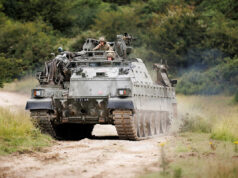
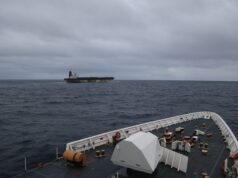


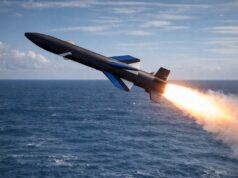
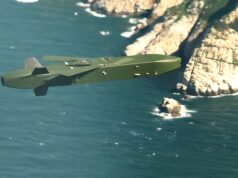


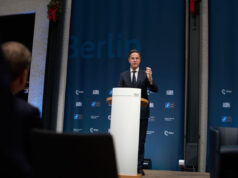
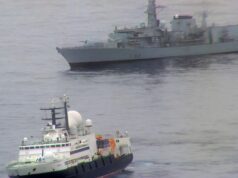

Our new minister appears to be a go-getter, a man with a mission and I applaud him for that.
I really like Gavin Williamson so far and I think he is genuinely trying to fight the corner for the Armed Forces. For that I thank him and wish him well. That said, ‘Spreadsheet Phil’ has absolutely no intention of giving defence a single penny more than what we have now; in fact it could be the opposite. Interesting times ahead…..
Hopefully not, David, as well as safeguarding the existing budget it really could do with an extra £2 billion. Hint for spreadsheet Phil – that extra now could save money later on.
The biggest problem facing Williamson is the plain fact, that spreadsheet Phil, knows all the MOD budget tricks having been Defence Security himself!!
Spot on Maurice. He knows where all the bodies are buried and where the Ruperts are hidden. LOL
Mmm, “conclusion”, long on rhetoric, short on detail.
Good to see the enthusiasm all the same.
All that talk and only a 4 million pound announcement…
I say, Bravo!
I applaud the Defence Secretary’s speech. However, without sorting out the funding crisis to back up this common sense or else he’s just spouting hot air like the majority of politicians.
There was nothing in the speech regarding the following:
1. How they will encourage recruitment or retention.
2. Replacement of the Challenger 2.
3. Increasing the Fleet’s fire power especially its surface warfare capability.
4. Retention of our Amphibious forces or a replacement for Ocean.
5. Increasing the number of P8 maritime aircraft.
6. Replacement of our AWAACs and Sentinel aircraft.
7. Increasing the budget to take into account the National Strategic Capability, Pensions and Cyber Defence and still meet the the real 2% NATO stipulation.
8. A National ballistic missile defence.
The speech reads like a wish list, but without substance.
Or an increase in RN escort, Apache, and Typhoon Tranche 4 (for QRA) numbers. The list of equipment that we would like to and should have is a long one sadly.
I noticed this too. Good speech, good to see an impassioned man, but nothing we don’t already know in terms of new kit.
Seems to me that this speech is designed to put pressure or the Treasury to increase funding come November rather than to delve into specifics
Agree with this
Half decent speech, but he’s ratcheting the pressure on Fiddler Phil.
NATO speech is the one to watch then. He won’t say anything I suspect that’s not cleared through No’s 10 & 11, even if its not confirmed until the Autumn budget.
Let’s cut to the chase. What are we going to do to get Putin’s ‘volunteers’ out of the Ukraine and get Assad out of Syria?
Paul.P, who are “we” to decide either of those things ?
“Let us not give in to the demons of doubt?”
Putin is undermining the sovereignty of the Ukraine and protecting Assad, a leader who authorises indiscriminate use of force against civilians and children. I believe there is such a thing as a national (UK) consciousness and I am glad to see it waking up. Good to see May and Williamson calling out Putin. This right – wrong thing is not too complicated. The challenge is summoning the courage to speak out and to act: prudently of course and in conjunction with friends and allies who share our values.
When Mr Williamson was made Defense minister I honestly despaired. He seemed like a back room politics dealer, a life time poltican who would only use the post to further his career. And whilst I still refuse to feel hope which has been dashed so many times in the past this does help dispel the perception that he doesn’t care.
That said I’m overall not that impressed by the speech. Everything before point six is the usual spiel. And what we see is interesting, but crucially it makes no mention of numbers. Britian is a world leader in many areas bar certain technologies like long range air defenses and anti ship missiles that nations like Russia pursue with a passion. But we just don’t have the numbers. Not enough ships, not enough soldiers and barely enough equipment. It doesn’t matter how capable a piece of equipment is, it can’t be in two places at the same time and if it’s lost (and it will be, no matter how capable) it is devastating and irreplaceable. We learnt this lesson during the Falkalnds which seems to have been forgotten.
You want to make the British armed forces an orginization to be feared by our enemies and respected by our Allies again then it needs those numbers back. Or all we have is a hollow force that wouldn’t last a month in any real near peer combat.
Sadly, its not the Defence Minister that gets to decide the size of the armed forces: that’s dictated by the budget, and thus is the purview of the Chancellor and ultimately the PM. Give Williamson his due, he’s visibly doing the most of any DM in the past decade to fight for the forces
I’m really starting to believe Gav has the balls to fight for the military. Fallon was coming around but it was too late, Hammond drove us utterly into the ground and set us up for the position we now find ourselves in.
[…] To read more… […]
Talk is cheap the test is will the current UK government be able to deliver on defence in face of the growing number of threats.
I fear not, without the US commitment to NATO we would be in real pickle.
The only alternative to this government is a Corbyn led one, now that would be a read disaster for the whole of the UK, EU and NATO.
Williamson is adopting the right tone and attitude. But people will be more impressed if he can accelerate some key decisions and place contracts for key items e.g. Challenger 2 upgrade , APC , Type 31e. Some actions would be good.
Good speech. Short on detail but fundamentally correct in principle
Cameron and Osbourne took the German view that economic and soft power was the answer to everything.
The truth is far harder pill to swallow. We live in a dangerous hostile world. Hard power has to reinforce our soft power efforts. The modernising defence programme must include plans and a budget for the following key programmes
RN
Increase manpower by 4-5000 to take us back to pre SDSR 2010 levels, yes this means massively investing in real recruitment and retention and terms of service. Especially quality of armed forces accomodation.
Order more than 8 type 26 frigates, these are war winning vessels
Place a firm order written in blood for the type 31 rogramne to come in budget and on time, 5 hulls asap (before 2023-2026 timeframe) and then continuous building 1 type 26 (every 18 months) and 1 type 31( every 12 months). That would be a national shipbuilding strategy
Replace HMS Ocean, purchase something like an adapted Izumo class optimised for LPH role but capable of escort carrier ASW role.
Retain both Albion and Bulwark
Fit mk 41 vl system to type 45s and get their power and propulsion fixed right now.
Order in an anti ship missile for surface ships Norwegian or Japanese versions for type 31s, LRASM for type 26 and type 45 mk41 vl systems
Order a further batch of 3-4 astute class to be built concurrently with Dreadnought SSBN
Retain river class batch 1s for our EEZ patrol post BREXIT
Army
Prepare to replace challenger 2 with a new challenger 3, giving us a qualitative edge over all current and projected Russian and Chinese MBTs
Order more Apache attack helicopters, these offer outstanding bang for bucks. We should have 100-150 of this aircraft type
Put back onto army strength an additional 3000 soldiers to equip a chemical or biological warfare optimised brigade, able to swing into action and help clear up any terrorist or state sponsored WMD.
RAF
96+ active F35Bs for RAF and fleet air arm so we could operate both QE carriers if the need arose.
Order a further 4-5 more Poseidon MPAs so we have a small reserve and can maintain standing patrols over GIUK gap and Norway-Shetland routes.
Place a further order for 2-3 more squadrons of Eurofighter typhoon tranche 4. The RAF needs more high performance jets, current numbers are too low. With recent orders for typhoon by arab countries the production lines should remain open until 2025-2026 at least.
Invest in drones their cost effectiveness is amazing.
We can afford all this. Just set defence budget in law like DFIAD at 3% GDP to defence ratio
Put the cost of strategic nuclear deterrent back on the treasury where it should never have left 0.15% GDP per annum over the life of the programme, small price to pay for the ultimate guarantee noone will successfully defeat us or destroy our country in a major war.
Let’s see what comes out in the Autumn budget, the MOD need to take a long hard look at themselves and their terrible failings to control defence procurement costs and contractual overruns. As with all public sector areas there are efficiency savings to make.
The RN is working hard regarding recruitment. The latest TV adverts are appealing to women. Before that the emphasis was ethnic minorities. Can’t accuse them of not trying.
Also the accomodation and manning rotas of the newer ships are more family friendly. Some crew comments on HMS Forth
https://www.forces.net/news/exclusive-behind-scenes-royal-navys-newest-ship
The comments on engineering re comparison with Type 23 are also very favourable. Modern systems automation is reducing the need for as many crew numbers.
It’s a hard slog. It would be good if HM Gov could at least signal hopeful intent. Even a symbolic increase in equipment would be welcome e.g. a couple more Merlin helos or another River 2.
women and ethnic minorities won’t bump up numbers. white working class men are the backbone of the forces. targeting the masses is what’s needed.
He is young and seems to have ambition and drive, I rather like him, lets hope he can get some results
I think Mr Williamson is doing a great job, he is setting the scene and getting on top of the PR which will help leverage the treasury into position, this is all aided by the situation in Salisbury.
I also think he has the right approach in setting out our Post Brexit situation, both from a soft power and industrial benefits position.
Clearly the proof is in the pudding and a commitment to a minimum 3% spend is required allied to the MOD getting its act together at last.
I would also like to see us become more “British” in our approach and not just blindly try to be a mini USA force. We have done this before with our ASW, Minehunting and Special Forces and these are world leading, so its not as if we can’t do stuff on our own and do it better.
Where we can get really good equipment at an unbeatable price point (apache) we should buy off the shelf and we need to be strategic in what we do and dont do as a national endeavour and be the best in the world at it.
I suspect this is the early rounds of an ongoing PR campaign by Mr Williamson and I am right behind him on all this.
Evening all
Devil is in the detail:
Army Division
Airborne Brigade
Commando forces
Two well understood formations and “Commando Forces”
Remember this is all about narrative now, MDP is a slight of hand exercise given a little headline news because of the Salisbury incident.
For those who believe that extra money is coming just have to look at the NHS. HMG wants to give more but has to raise tax (1p on NI) to pay for it. The press are already calling this a stealth tax hike!
Sadly the Salisbury incident will slowly disappear from the news and it will be back to reducing ambition to pay for toys already purchased whilst purchasing more toys to show the world that “Global Britain” is a serious global nation, using innovation, being international by design and working with allies.
All the while we will continue to pay kit-Kat money to the EU.
I badly underestimated Gavin Williamson when he was appointed. An ambitious young’ish man on the up seems to be proving a far more determined fighter for Defence and national security than any of the supposed “big hitters” of the last 20 years. Of course the big test is whether he manages to get any new money to support the Modernising Defence Programme. That would send out a hugely positive signal before the NATO summit in July 2018, as well as assisting in the negotiation of a new defence and security partnership with the EU.
We have two elephants in the room; the MOD requires an additional 20 billion over 10 years JUST to maintain the status quo (no cuts, plus fund the ‘current’ equipment program), and the potential financial risks of funding the nuclear deterrent from the MOD budget rather than the Treasury (as has historically been the case).
To see any actual manpower / equipment gains, we would need to see a substantial annual increase in spending. We need 2 billion a year for status quo, a billion (?) a year to tackle the maintenance / spare part / missile and ammunition stock pile deficit that has accumulated, then additional money for any new equipment or increase in manpower. We would likely need in excess of 5 billion a year (an increase of 15% to the current budget) to have any meaningful long term impact. That pushes defense spending from 2% to 2.3% of GDP at a minimum.
I like the Defence Secretary. I think he’s done well and showed spirit compared to Fallon and all the rest for decades.
However. We’ve been here before with these fancy speeches which result in cuts, followed by cuts, followed by impending cuts. HMG have cut before with the excuse it is enabling “modernisation”
In the previous reviews we had the terms “more agile” and “leaner” justifying cuts. How is having less of everything “more agile”? It hamstrings what is left by overuse, in men and equipment.
I’m hoping I’m wrong and I do like what Williamson had said and done so far but remain extremely cynical until words are transformed into means.
I must admit I thought this chap wasn’t fit for task.
Considering the difficult present circumstances he’s surprised me.
He’s said more and done more than many of his predecessors.
Time will of course tell but you’ve gotta admit he’s making the right noises.
I said at the time of his appointment, give him a chance. I don’t think he has done too bad so far, but the proof will be the end of the review and the budget in November.
I think the percentages being argued over are misleading. I think a clearer breakdown of the budget would be useful. Some should be consistent, ie the current pension liability, others predictable (allowing for currency) T-26. I would sooner see a commitment to a real budget. Ie £40bn next year, £42.5bn the year after etc. Any funds available after filling any black hole should be allocated as follows.
Priority should be given to recruitment and retention. So we can use the kit we have, no long term ships alongside for example).
Readiness ie ammo stocks, repair and availability
Next should come commitment to kit that needs improving or integrating UK weapons on MPA, Meteor etc on F-35.
Then look at additional kit.
Finally look at no cost options that help UK industrial capacity to help the UK Military, order the FSS ships from UK yards and maintain a steady drumbeat of orders to maintain industrial capacity. Be it ships, trucks, apcs or tanks.
let’s see how the mini sdsr goes, but on the face of it it’s like the year of the navy, increasing defence budget, 178b etc statements, lots of talk and not a whole lot of specifics to back it up or to be rated against at the end of the year when the reverse appears to happen.
I would like to see the 2% of GDP vanish and replaced with a percentage of tax revenue, which is a far more realistic benchmark for government spending. For Britain the 2% is about 8% tax revenue I believe. It would be interesting to see how it compares with other countries western countries (can’t compare with China or Russia where cost of labour is so low and health and safety a non issue).
My life experiences have taught to judge people on results rather than what they say.
Good luck to Mr Williamson I hope you deliver, but will not be to surprised if you do not.
Morning all
Some bold decisions are going to have to happen within MDP to make sure HMG has a viable and realistic defence programme that satisfies the ambition of politicians and the fiscal reality that civil servants at HMT present them.
Common themes show that industry, by enlarge over price and under deliver, specifically by that I mean U.K. industry. The ship building strategy should help with that and the T31 model should be an exemplar if MoD can stick to its guns if and when the project goes over forecast cost. The budget has been set, it is a requirement – MoD should not breach it, if industry costs breach the budget then industry should just suck it up, as they have to do in the commercial world.
Toys – to solve a problem it is always believed that the best tech will solve it. Tech costs lots of money and companies are always willing to sell ideas, MoD seniors are always too willing to buy. This needs to stop, a rational look at what HMG is trying to do should happen. Once this is complete MoD need to see whether they have the people and the processes in place before they go out and buy the next toy.
Rationalisation of platforms, for example the RAF will soon be receiving P-8 which is based on Boeing 737. E-3 is based on Boeing 707, Sentinel is based on Bombadier Global Express and Rivet Joint is based on 707.
E-3 needs to be replaced, replace it with Boeing 737 variant. Sentinel platform needs to be replaced, replace it with Boeing 737 platform. Suddenly you have multiple capabilities being supported by one platform (737). Support costs go down, through life costs are cheaper, pilots can do there initial training with a commercial provider (new markets).
Replace the Puma MH90. It shares a lot in common with the Merlin and can be licence build in the U.K. all the development snags have been ironed out and it used by most of our European and Australian allies. Supply chain costs are reduced, we can share training with other NATO nations and inter operate supply chains if operating forward.
Now for the contentious one:
Split buy F-35 with the RAF getting the A model and the RN getting the B model.
You will still have the joint force ethos but airframes will be allocated to the single service dependent on role.
RAF will then have combat air that consists of:
Typhoon and F-35A
RN will have F-35B
Logistics and support would be shared but the single services will have operational ownership of the aircraft they deploy.
SPEAR 3 should include anti-ship weapons
Hopefully this will get some comment, I will add more WRT Army and RN later.
However in all of this you need to remember 1 thing, People.
Without men and women in uniform none of this is possible.
People first, then process and then technology.
Hi Lee, totally agree with your comments above.
The MOD must put in place a valid reason for joining the services and serving your country. This incentive must not only entice people through the door but aids in retention. One of my thoughts has been a general tax cut, but it must be competitive otherwise it would be worthless. Perhaps, something like the US forces model, where service personnel are given lots of rewards that are also a benefit to their families.
One of the biggest issues is OEM contractors, who are on much better salaries compared to their service comrades, but also don’t suffer the “faff baggage” that being in the service entails. Therefore, there must be a decent welfare package that can compete with this to stem the flow of personnel joining these companies.
By buying in to the OEM support package which generally includes replacing service personnel with their own, destroys the flexibility that the services can deliver. It may get some short-termist officer promoted due to the supposed cost savings, but it ruins the ethos of the military. It has already stopped ships going to sea (lack of chefs being one example).
We definitely require more man-power are commitments post Afghan have not diminished, but the numbers of our personnel have. If the UK Government wants to be seen as a World Leader, boots on the ground is there first priority.
A brilliant quote from General George.S.Patton: “There is a great deal of talk about loyalty from the bottom to the top. Loyalty from the top down is even more necessary and much less prevalent.”
Morning DaveyB
Many thanks for comments
Personnel are always the last to receive, it just doesn’t make the news like a new ship or aircraft or tank.
However there are some things MoD could do now to improve the lives of the men and women serving, and incentivise others to join:
Remove PAYD – replace with free meals. All serving personnel are entitled to be fed, it is the duty of the services to make sure that their soldiers, sailors, airmen and Marines are fit to fight.
Wellington said “An Army marches on its stomach”
Accommodation charges matched with an index linked savings fund so that when the serving member wants to put a deposit down on a house he/she has the built up collateral to do so. Imagine a family living in a married quarter for ten years and then wanting to purchase a house, a lot of the deposit is covered by the money saved by the MoD on their behalf.
£250 p/m x y number of months could work out to be a lot of money. Money though can only be used on purchase of house and profit on sale is shared with MoD so MoD will get money back.
Decent single living accommodation for all junior ranks with all modern amenities.
Bring married quarters management back into the military, build the families officer team up to support it.
These are just some ideas – I am sure there are many more out there, none of them involve buying new toys from defence companies
This from a government that has slashed both strength and capability across all branches of the forces.
We need to start creating areas of denial like the Chinese do at choke points.
A Mass of long range anti ship weapons and sams .
Iceland uk gap
Gibraltar
Cyprus
Anywhere where we have a tactical foot print.
Capability now not in ten years. Another 20 typhoons , more P3’s , another astute , and a few cheap barrage ships loaded with cruise / anti ship and amas .